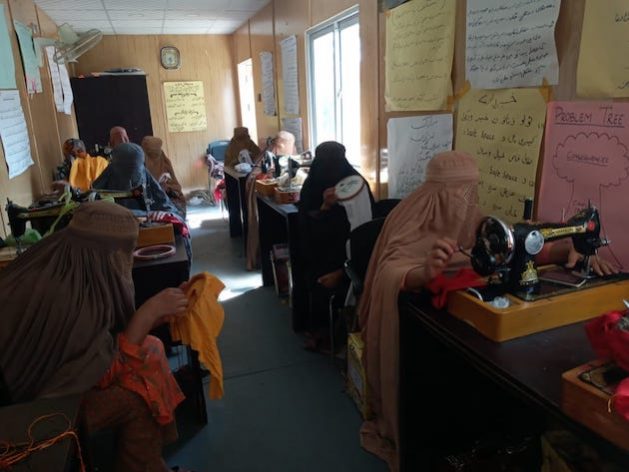Five questions answered: Why did Israel, Hezbollah attack each other? | Israel-Palestine conflict News
Israel says it launched a preemptive attack on positions in Lebanon from which Hezbollah was preparing to attack Israel.
Hezbollah launched its own attack on Israel later on Sunday morning, targeting several military and intelligence targets.
Hezbollah Secretary-General Hassan Nasrallah said the operation was ordered after Israel crossed all “red lines” in attacking Beirut’s southern suburbs and killing Hezbollah commander Fuad Shukr at the end of July.
The two sides have been trading tit-for-tat attacks since October 8, the day after Israel launched its war on Gaza following Hamas-led attacks on southern Israel. Hezbollah began engaging Israel in small attacks across the Lebanon-Israel border, saying it would stop only when Israel halted its war.
Al Jazeera spoke to experts to get answers to five questions about Sunday’s exchange of attacks.
Israel says it damaged Hezbollah’s arsenal. Did it?
Hezbollah is estimated to have 120,000 to 200,000 rockets in its arsenal and has fired about 8,000 at Israeli military positions since October.
Israel said its attack destroyed thousands of Hezbollah rockets while Hezbollah said it sent off about 340 Katyusha rockets aimed at 11 military bases.
Nasrallah said Israel claims it has the “strongest military in the region” but “resorts to lies”. He called it “a sign of weakness”.
“Israel’s claim … might be an exaggeration for political gain as there have been no reported significant casualties among Hezbollah forces,” Imad Salamey, a professor of political science at the Lebanese American University in Beirut, told Al Jazeera.
“However, the destruction of such a large number of rockets, if true, could weaken Hezbollah’s arsenal and limit its ability to sustain prolonged military operations.”
Is this all-out war between Hezbollah and Israel?
No, at least not for the entirety of Lebanon and Israel.
Southern Lebanon has suffered deeply from Israeli attacks since October 8 with more than 97,000 people displaced and at least 566 people killed – 133 of them civilians.
On Sunday, Israel hit about 30 southern Lebanese towns and villages in its largest attack since October.
In its attack, Hezbollah said it targeted military bases and avoided civilian targets.
Israel and its allies have been waiting for a retaliatory attack since the assassination of Shukr on July 30. The group said in a statement that this “first phase” of retaliation was “successfully completed”.
“This round seems to be over,” Karim Emile Bitar, professor of international relations at St Joseph’s University in Beirut, said.
“It doesn’t mean there won’t be further attacks in the coming weeks, but in all cases, this is nerve-racking for most people living in this crazy part of the world.”
Was this revenge for the assassination of Shukr or Hamas leader Ismail Haniyeh?
Hezbollah said its operation was a response to Shukr’s assassination.
While Hamas political leader Ismail Haniyeh was not mentioned, Nasrallah said there was coordination between Hezbollah’s regional allies in the Iran-aligned “axis of resistance”, which includes Hamas and the Islamic Resistance in Iraq.
“We decided to respond individually for reasons that will become apparent over time,” he said.
Nasrallah added that the response to the assassination was delayed due to negotiations between these allies about whether to strike in tandem or do it alone.
Among the principal targets of Hezbollah’s attack was the Glilot base close to Tel Aviv and where Unit 8200 operates.
Unit 8200 is the Israeli Military Intelligence Directorate’s main information-gathering unit and, according to Nasrallah, “conducts Israeli assassination operations”.
Israeli officials told the AFP news agency that Glilot was not hit.
“Hezbollah’s recent missile attacks are reportedly in response to the killing of Fuad Shukr, a senior Hezbollah commander, and not directly related to the death of Hamas leader Ismail Haniyeh,” Salamey said.
“The organisation is signalling that their retaliation is part of a broader strategy of retaliations rather than a singular event.”
Did this have anything to do with the Gaza ceasefire talks?
Yes, the timing of the ceasefire talks played a role.
“The timing of these events is crucial as they coincide with negotiations in Cairo aimed at a ceasefire in Gaza as well as significant Shia religious commemorations,” Salamey said.
“Hezbollah’s actions are likely designed to increase pressure on Israel during these talks, leveraging the timing to boost its popularity and strategic position in the region,” he added.
According to Nasrallah, who spoke on Sunday evening as Israeli negotiators arrived in Cairo, Hezbollah had “waited to give negotiations a chance”.
There was little optimism around the talks, however, as the Israeli delegation stood fast on Israeli Prime Minister Benjamin Netanyahu’s new conditions, including allowing Israel to remain in the Philadelphi Corridor on the Gaza-Egypt border.
In his speech, Nasrallah said: “Today, it is clear that Netanyahu is setting new conditions. There’s no longer any reason to wait.”
Qassem Kassir, a Lebanese political analyst believed to be close to Hezbollah, told Al Jazeera: “The initial response was to Shukr’s assassination and a message of support to the Palestinian negotiator. Things are linked to the results of the negotiations and the Israeli response.”

What happens now?
Reuters reported Israel and Hezbollah communicated to each other that neither desires a further escalation as Israel’s negotiators travelled to Cairo for the ceasefire negotiations on Sunday.
For now, the boiling tensions seem to have returned to a simmer.
But neither side’s operational capacity appears to have been significantly damaged, according to analysts.
“Hezbollah’s ability to carry out a sophisticated attack despite Israel’s preemptive measures demonstrates its resilience and operational capacity,” Salamey said.
“This suggests that Hezbollah is well prepared and can still coordinate significant military actions, maintaining its strategic position in the conflict.”
As the two parties continue to position themselves, the civilian populations wait and watch.
“Lebanon is in an extremely difficult situation, and an overwhelming majority of citizens of all sects, including many Hezbollah supporters, would not favour a wider war,” Bitar said.
Check out our Latest News and Follow us at Facebook
Original Source







